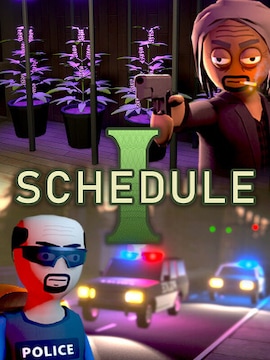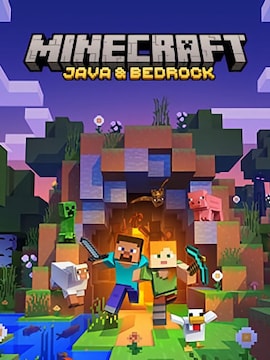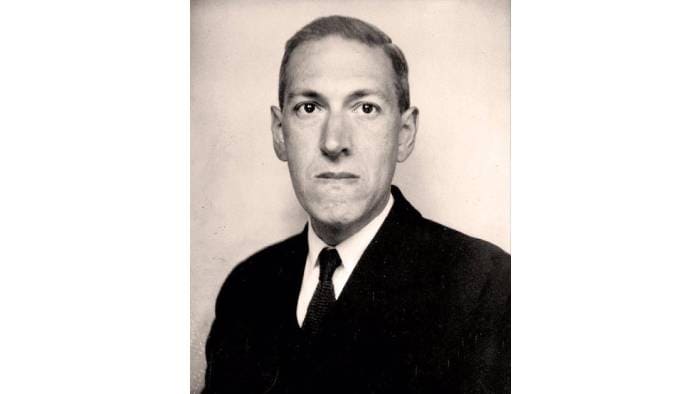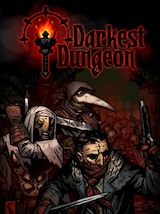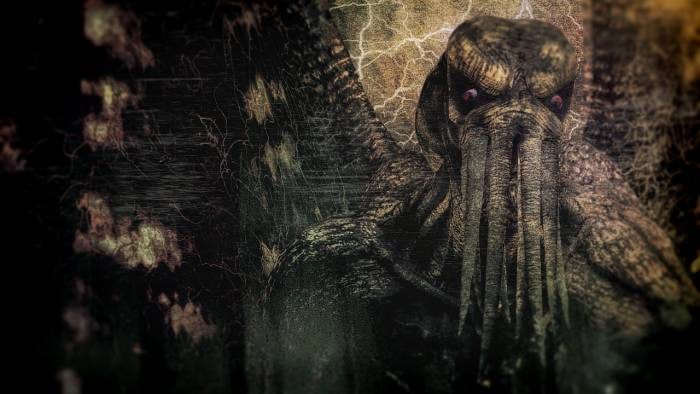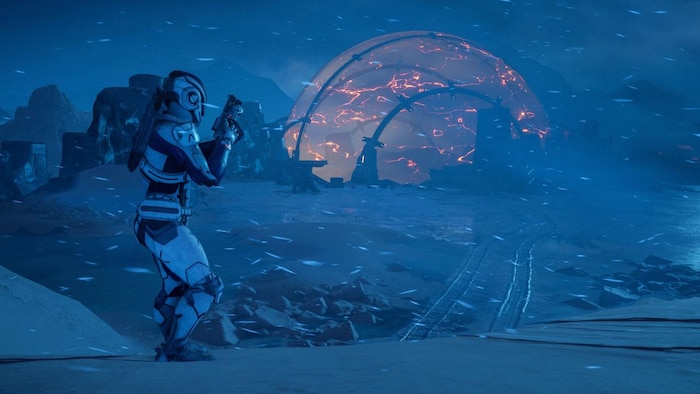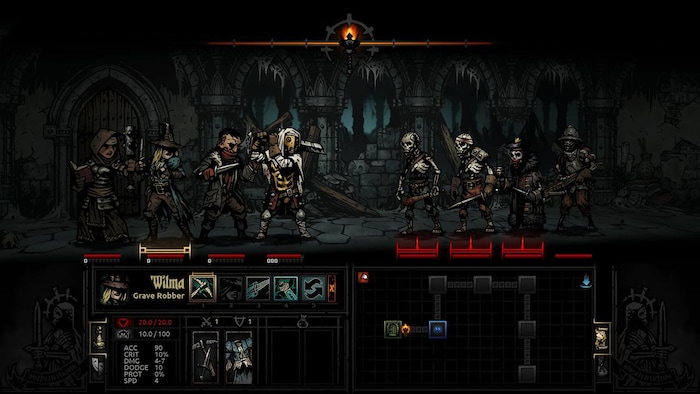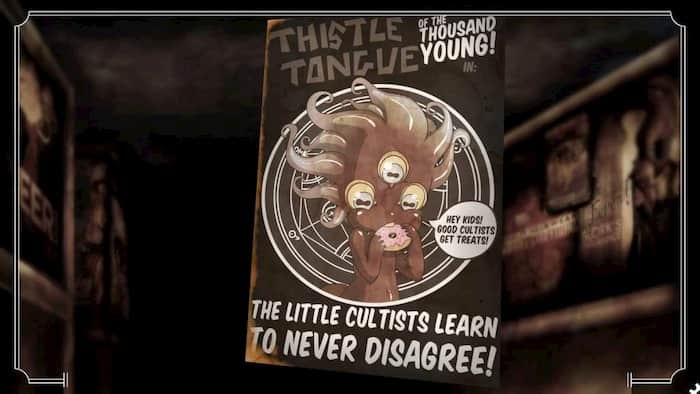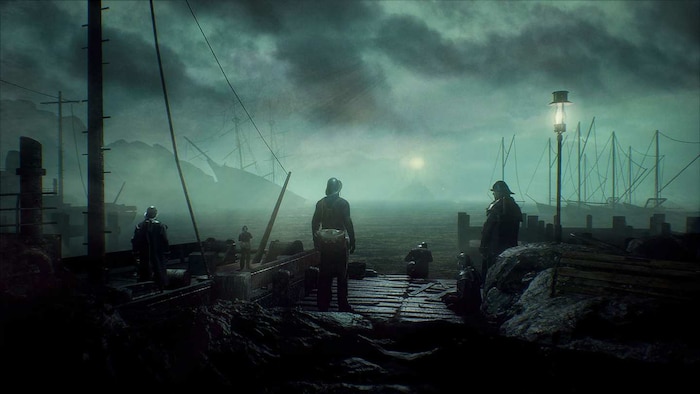H.P. Lovecraft’s name is spoken in much reverence and quite often, in certain circles. After all, he’s responsible for creation of a particular brand of horror, one that would come to define our relationship with the grander picture of human development, one laced with underlying principles of nihilism and an overwhelming sense of dread.
His ideas were so pervasive that they spilled into the mainstream, where they moved other book writers, film makers and finally, video games developers. It’s a very specific thing, to be Lovecraftian, often touted but ultimately rarely understood and requiring a certain level of finesse to implement successfully.
This will be somewhat discursive and might, at first glance, seem like a disorganized ramble. But, as you’ll come to realize, there’s method to this madness. Now let us dive deep and uncover this eldritch truth together folks.
The man, the myth, the legend.
You heard the name, of course, Lovecraft was an American writer, leaving in the early 20th century. He didn’t have what you’d call a peaceful childhood, as his father was sent to an asylum early, which certainly contributed to Lovecraft’s long distrust towards mental health institutions (of course there’s also the fact that being institutionalized at that time was among the worst possible things to happen to a person). Later on several more of his family members would share that fate, which definitely didn’t help.
He also lived in relative obscurity, chasing the dream of publishing his harrowing works, but being constantly forced into writing for pulp magazines and having to work as a journalist. Lovecraft had a very bad opinion of such practices, believing firmly that commercialization of art leads to low quality. There was presumably a lot of self-loathing involved in his work.
Small disclaimer here, as it may be prudent to mention this, he was also unabashedly racist and certain elements of coding are clear in his works (due to later additions by his friend, August Derleth, black people are literal pawns of Satan), though later in his life he would soften up on a lot of his stances and retract a lot of racist sentiments.
He lived and died in poverty and obscurity, with few friends, most of his family in mental hospitals and hating the work he was doing. He was a forlorn, spiteful person and his writings come from a place of life-long depression and an over encompassing sense of failure and powerlessness. Understand that while we move along.
The Cthulhu Mythos
Lovecraft’s greatest contribution to horror is what would later be built upon by his friends, notably the aforementioned August Derleth (who was pretty much responsible for even bringing Lovecraft’s writings to the limelight), and expanded to become something of a shared universe of motifs, characters and places, loosely connected by themes.
The Mythos is an expansive category that quite escapes strict definition. In short, it mostly refers to the backstory and lore of the universe his fiction takes place in, universe in which immensely powerful and incomprehensibly alien creatures lie in their deathless sleep in the dark void between the stars.
These beings, known as the Great Old Ones existed long before first apes started using tools and they will persist for untold eons after we’re gone. To merely ponder their existence is a rabbit hole that drives one to insanity. To call out their names is spiteful blasphemy. To relish an encounter with them is to be utterly and completely mad.
Yet, it is not these beings themselves that are the most important aspect of Lovecraft’s work, but rather, it is the relationship that humans have with the universe at large.
Cosmic Horror
To be human is to show empathy. To find empathy, one has to look for agency. Be careful where you look for agency though, as what looks back at you in the dark, cold void, may not be as merciful as you might want it to be. Worse yet, it might see you and consider you entirely beneath its notice.
See, the defining feature of cosmic horror comes not from the malicious nature or vicious tenacity of monsters that lurk in the shadows, it comes from the terrifying realization that the cosmos is a vast and fantastic expanse, hundreds of millions of light years across, strange worlds of mysterious nature and singular entities of great might.
It is a difficult pill to swallow. To look upon the smallest moon of Uranus, Miranda, witness the strange stripes on it, pointing to geological events that happened billions of years ago and understand that NOTHING that happened involved us, was about us or would ever even consider us. To know that the universe is an island, entire of itself and your consciousness is entirely meaningless to anything and everything that happens in it.
Few games even as much as try to evoke this kind of fear, fewer still succeed, but some chosen few manage to pull if off. Examples include the Dead Space series and Alien: Isolation, which manage to masterfully showcase this immense dread one might feel when they stare deep into the darkness and realize that no help is coming. There is only darkness and cold.
Science won’t get you out of this.
Building up on a trend started by Victorian Horror, Lovecraft also approached his work from a certain point of distrust towards science. And it goes much, much deeper than simple skepticism. It is an underlying assumption that scientific progress is not just insufficient, but harmful and pointless.
To Lovecraft, scientific mindset doesn’t just have limits beyond which it become useless, it actively hampers one’s ability to overcome certain challenges. It demands a point of view that leaves one ill-equipped to handle reality. Though admittedly, there really is no “correct” mindset, human mind is simply too frail to withstand eldritch truth and there’s nothing that can be done.
This is not easy to convey in gameplay terms, but can be conveyed through story. The Resident Evil series is very good at interweaving supernatural horror with strictly sci-fi terms and presenting science as, indeed, a disastrous weapon in the hands of the greedy.
In the same vein, the Mass Effect series, while being a hardcore and believable space opera, throws a curved ball at the player very often with mysteries of the universe being impossible to decipher and by implementing the main antagonist as very close to what Lovecraft would describe as Great Old Ones—cosmic creatures of unimaginable power and utterly incomprehensible drive to wipe out the human species.
Obscurity is not a bug
One last staple of Lovecraft’s writing, one probably the hardest to replicate in the videogame environment, is that of the unreliable narrator. Lovecraft’s writings, in the subtext, often imply that even the recounting of the events itself is twisted by the narrator, whether due to their insanity, hidden agenda or simple incompetence.
This means, in so many words, that the book is lying to you. And replicating that in a game is difficult indeed, because creating a game that relies faulty information to the player is breaking a fundamental agreement between the player and the game. It could even be considered bad game design.
Few games even try doing this and I only know of select few which succeeded. Among those is the grim RPG, Darkest Dungeon, which is downright obtuse when it comes to relying information to the players. It presents its mechanics via tutorials, but drives the player down the path that will doom them, if they trust it. Figuring out how to even play Darkest Dungeon is part of the challenge and doing so feels almost like cheating the game itself. A game that, after all, attempts to cheat you in the first place.
A fantastic, even if niche card game, Cultist Simulator, does a very similar thing, spreading its various mechanics and possible win conditions thin, forcing the player to consider all disparate possibilities. As you get smarter about its various subsystems, you’ll notice yourself make decisions that, on the face of it, frankly don’t make sense, but actually lead to results. It is only through trail and error that you can begin to comprehend the hidden truths.
Eldritch can be cute too.
Much like previous article about the zombies, I want to end this one on a lighthearted note. Horror always had an… Interesting relationship with comedy. As people, we oscillate between fear and laughter with the media we consume. And there’re some connections between a Lovecraftian games horror and a comedy.
For one thing, comedy doesn’t need to make sense either, it works on emotional level, so while the realization of limits to the scientific method can evoke dread, it can just as easily evoke laughter. A Great Old One raising from the sea to destroy humanity is obviously scary, but there’s a certain charm to it as well and given enough anime trappings, anything can be made to look cute and harmless.
There’s two games that I want to mention here, one is a fantastic visual novel called Miskatonic and the other is a management game called Eldritch Zookeeper. Both of these games manage to capture everything that we love about Lovecraft, while beautifying its various elements and making them more approachable.
This doesn’t mean the horror is gone. These games allow the players to see the world from the perspective of the Eldritch Abominations and this does lead to moments of genuine dread as you realize the vast difference in empathy at play here, but being able to interact with them on such a level may very well lead one to understand the strange devotion people have for Cthulhu, who unambiguously WILL destroy all humankind at some point.
Grant us eyes!
While Lovecraft himself may not have been the amazing writer you remember, people tend to look with rose-tinted glasses at his body of work. But without a doubt, he did start something. A trend that became a seed and that seed took root and is now a part of the grander culture.
Cosmic horror is the kind of horror that can be soul-crushing precisely because it doesn’t even attempt to scare you, its very existence is based in absolute apathy. So remember that we, all your friends and family, are still here and we’re all in the same boat as you, as we swim together through the cosmic void.
This time, as you explore different ways in which one can be afraid, and as you peer deep into the abyss between the stars, remember not to tarry on for too long. Because as you gaze into the abyss… The abyss might just gaze back.

